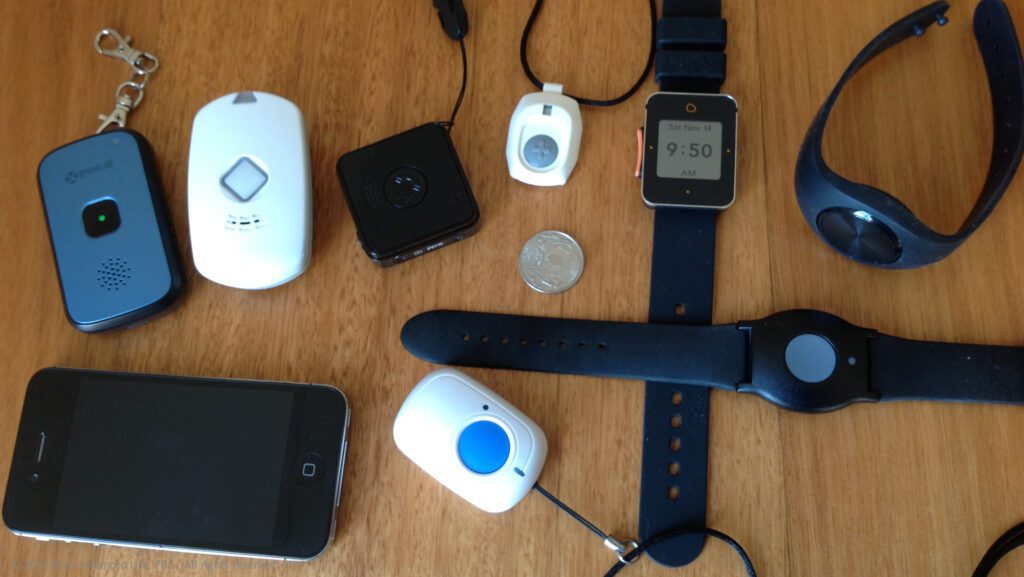 Editorial Team
Editorial Team
My Articles on Tech-enhanced Life
Archive: Medical Alert Research (Historical)
Archival research on medical alert systems, no longer updated.
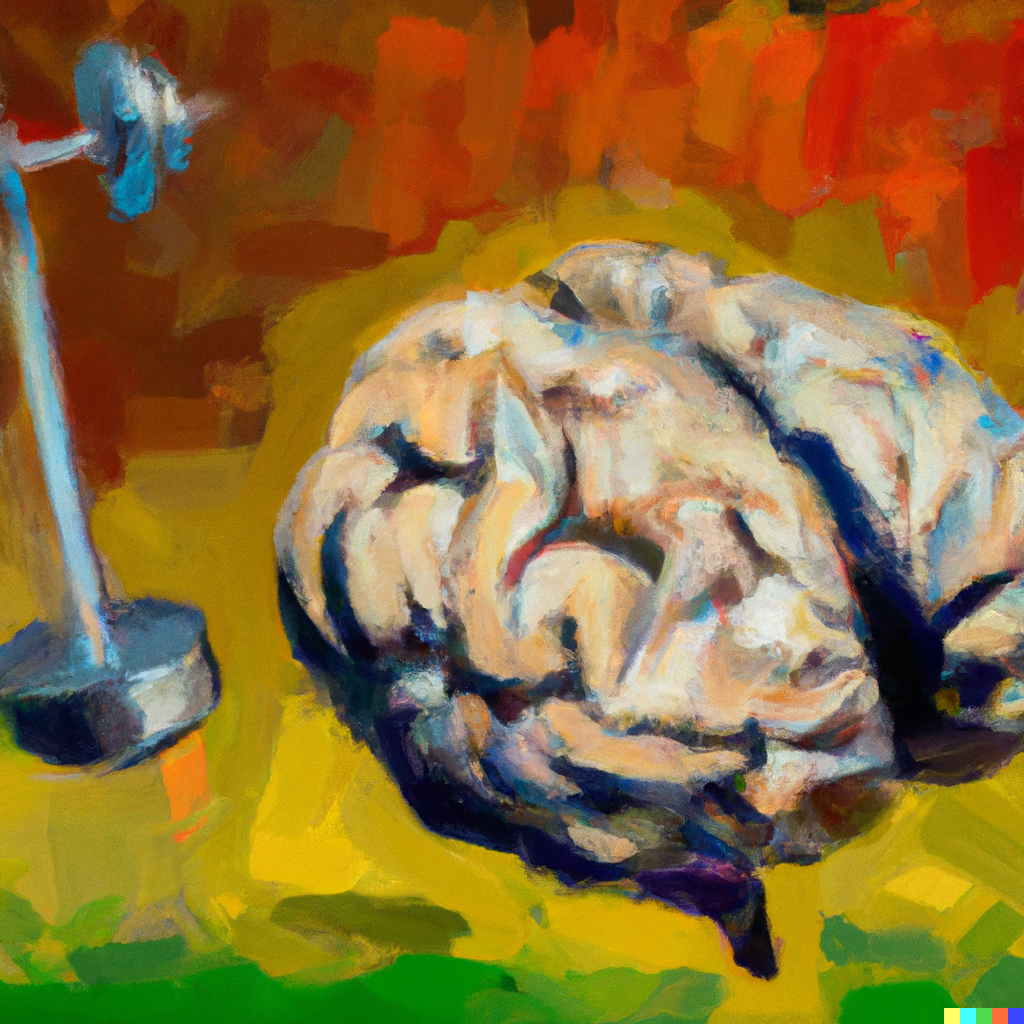
Brain Training: How Real are the Benefits?
As part of our search for a brain check engine light, we started evaluating a specific brain training product (BrainHQ) that has the ability to both measure aspects of brain function, and potentially “train” and improve them.
In this second part of our report, we look at what is known about the benefits of this type of brain training, and try and answer the question “Will brain training improve my everyday life (now or in the future)?”
For years we have been looking for an excuse to dig deeply into the topic of what is and is not known about the effectiveness of brain training. We finally got around to it, and this post shares what we learned.
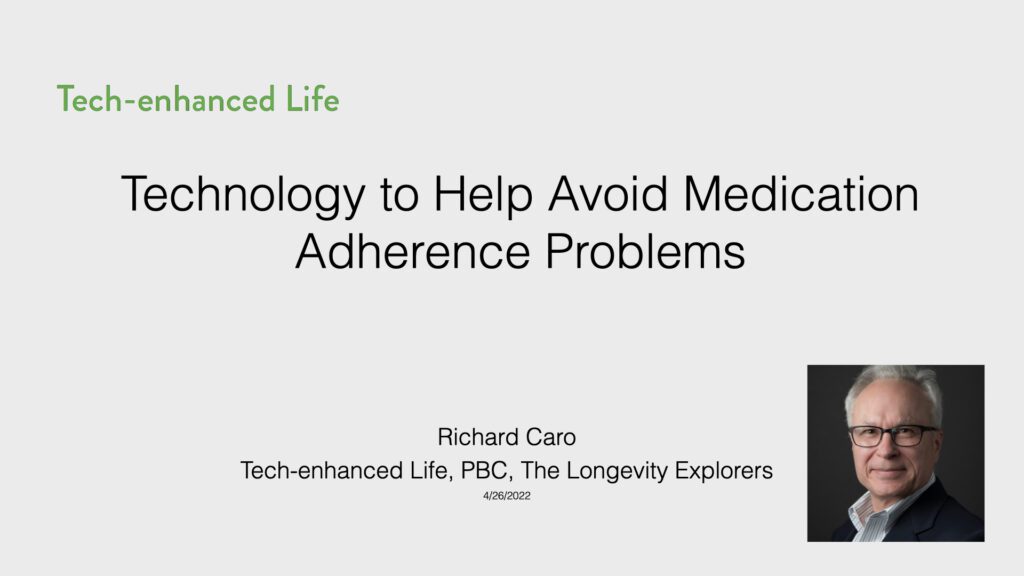
Seminar 5: Technology to Help Avoid Medication Adherence Problems
Clinicians often tell us that poor medication adherence is a big problem among their patients, and also that medication management is one of the more common reasons why older adults get moved to assisted living facilities.
But in recent years there have emerged several very sophisticated “gadgets” designed to help manage medication. These tools range in complexity depending on the specific needs of different types of people, but can make a big difference to quality of life both for the older adult and for their caregiver.
In this talk we introduce you to these products; and explain which ones are most appropriate for various different life situations, and types of people.
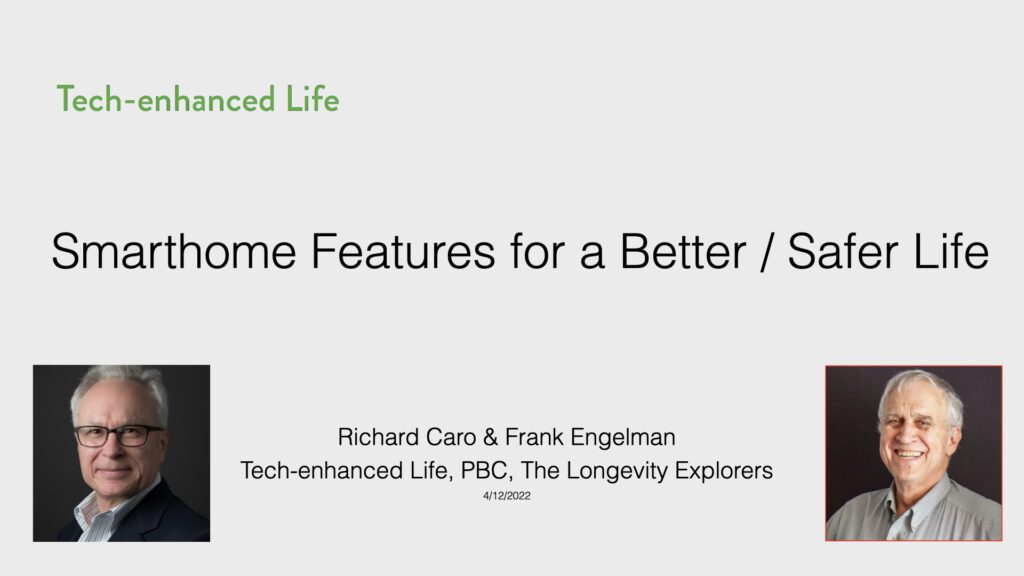
Seminar 4: Smarthome Features for a Better, Safer Life
Richard Caro and Frank Engelman have an ongoing collaboration to publish a series of use cases and recipes for specific “smart home features” — useful to older adults in various life situations. Most of these are based on Frank’s detailed DIY recipes, which he creates for his older relatives, and tests on himself.
In this talk we will introduce you to the situations in which these smart home features are useful, discuss the difficulties of implementing and maintaining them, and show you how to find specific smart home feature recipes for use cases like wandering (dementia), fall avoidance (automatic lighting); “making TV useful again”; and many more.
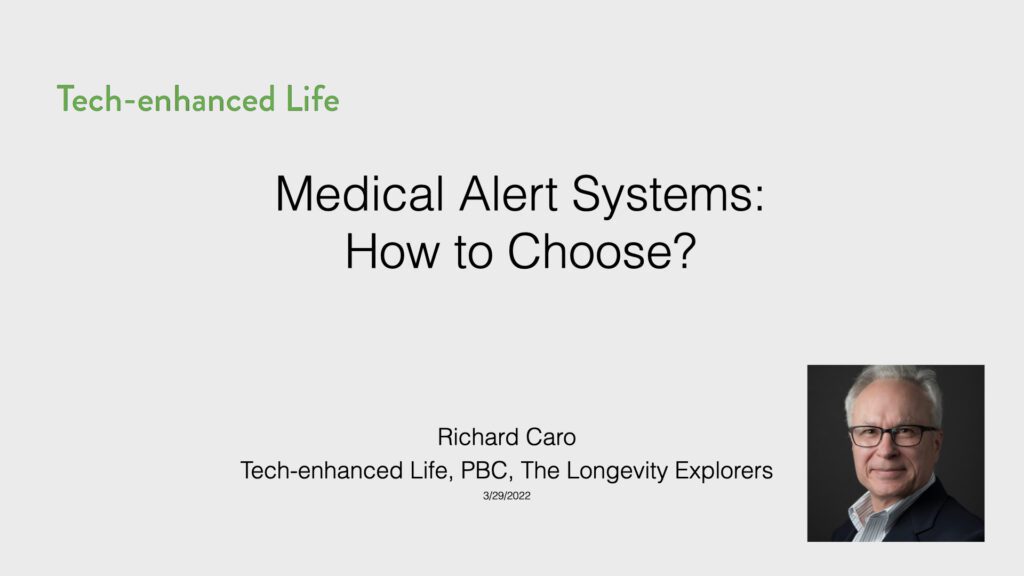
Seminar 3: Which Medical Alert? And Who Needs One?
Medical Alerts are well known “safety” devices. However there are many different types, and there are very few resources to help decide which type is best. Tech-enhanced Life has for years been evaluating different products in this category. While we do not believe there is such a thing as a “best” medical alert, we do think there are often a handful of “best” products for specific individuals (the right features depend on lifestyle).
In this talk, we will explain how to decide which type of medical alert is right for a specific person, and introduce you to the detailed coverage on Tech-enhanced Life that will enable you to pick a specific product that works for the person in question.
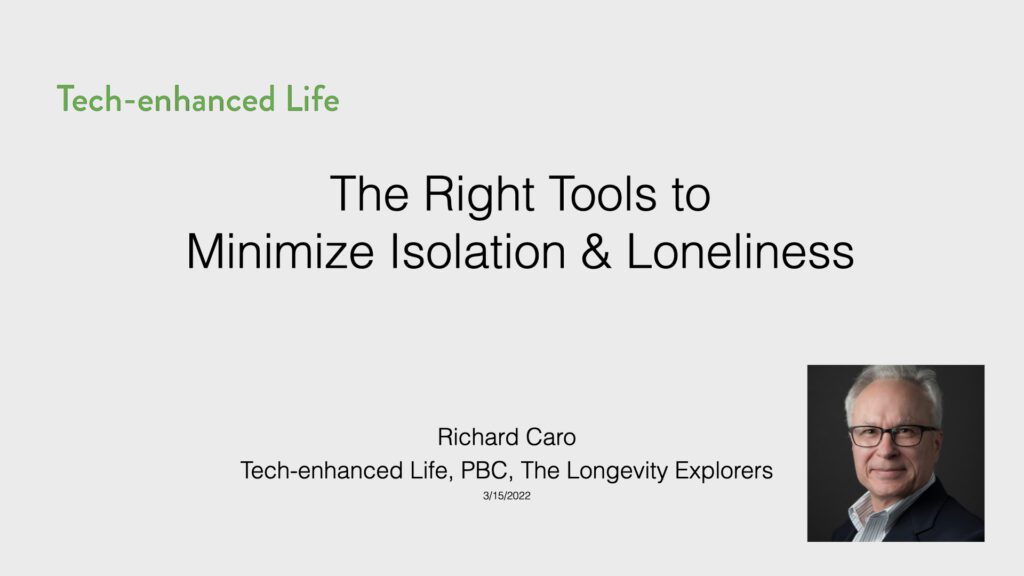
Seminar 2: Tools to Minimize Loneliness and Isolation
As many of us have been reminded during the pandemic, isolation and loneliness are very undesirable. But isolation is a frequent accompaniment to aging, as people lose mobility, lose the ability to drive, and lose members of their circle of friends.
While we have not found the silver bullet to solve these challenges, we have found a number of useful technologies that can help stay in touch with friends at a distance. There are also promising new solutions with the potential to help with making new friends, or with meeting people with similar interests. In this talk, we will dive into the details of these solutions, as well as frame the problems and describe how Longevity Explorers have approached avoiding social isolation.
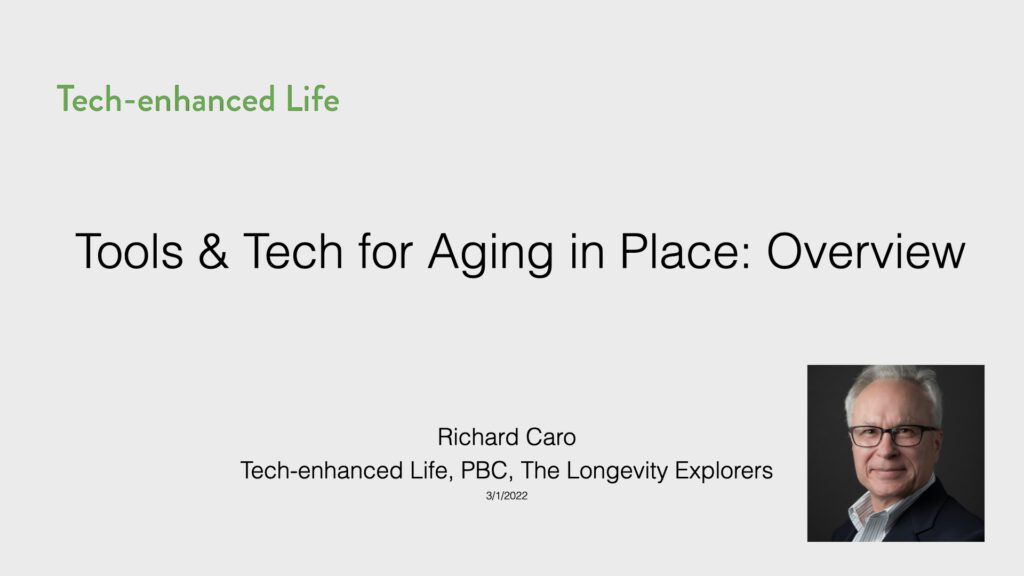
Seminar 1. Tools & Tech for Aging in Place: Overview
Over the last few years, a number of technology products have come to market that have the potential to help older adults remain independent for longer, and reduce the stresses on caregivers that help them.
In this talk Dr. Caro will introduce you to some of these products that the community of Longevity Explorers has found to be especially useful. He will also give an overview of the different types of aging in place issues likely to be solved with technology solutions and set the stage for the follow-on seminars.
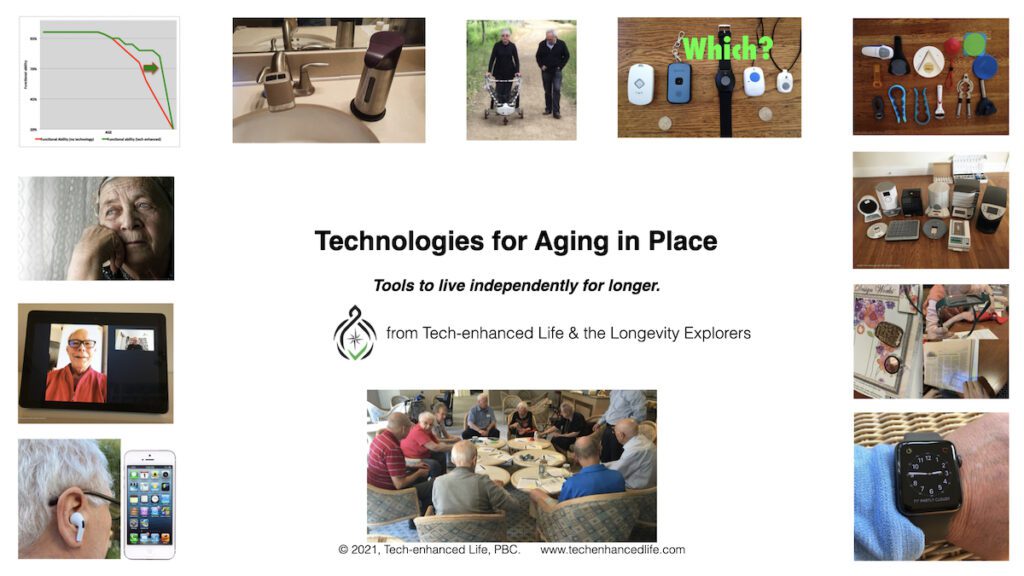
Seminar Series: Technologies for Aging in Place. Semester 1
Wondering which products and services can help an older adult live independently, with autonomy, as long as possible? Sign up for this seminar series to learn the answers.
Together with a community of older adults called the Longevity Explorers, Tech-enhanced Life has spent the last 8 years exploring the intersection of aging and technology, and evaluating a wide range of products and services designed to help people live independently for as long as possible. In this seminar series, we synthesize what we have learned.
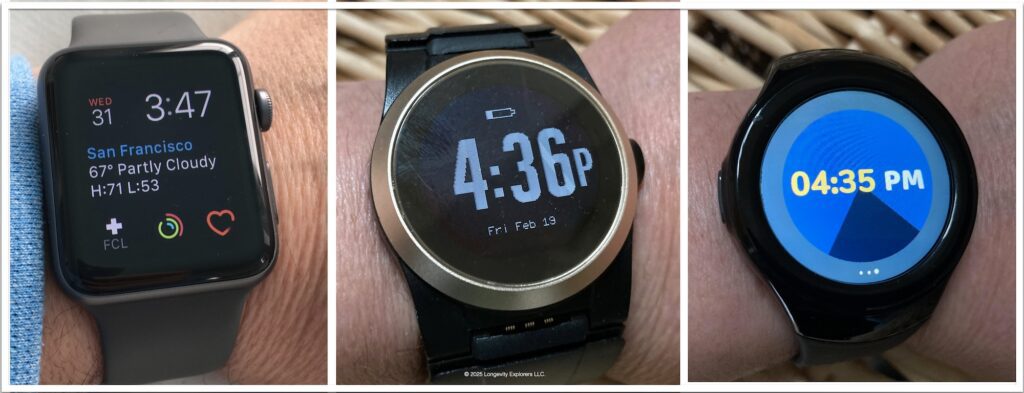
Best Fall Detection Watch: Hands-on Evaluation
Which is the best fall detection watch, many older adults and their families are wondering? We look at how to choose the best fall alert watch for a given individual. The evaluations described here include actual hands-on testing, done by technologists who also happen to be older adults.
Alexa Routines: Examples
As we explore various smart home solutions useful for "better aging", we get requests for some specific "kit lists" that contain a collection of the products needed to implement some of the DIY solutions found on this site.
This page is where we keep the lists of specific Alexa Routines which you can use in each of those "kits".
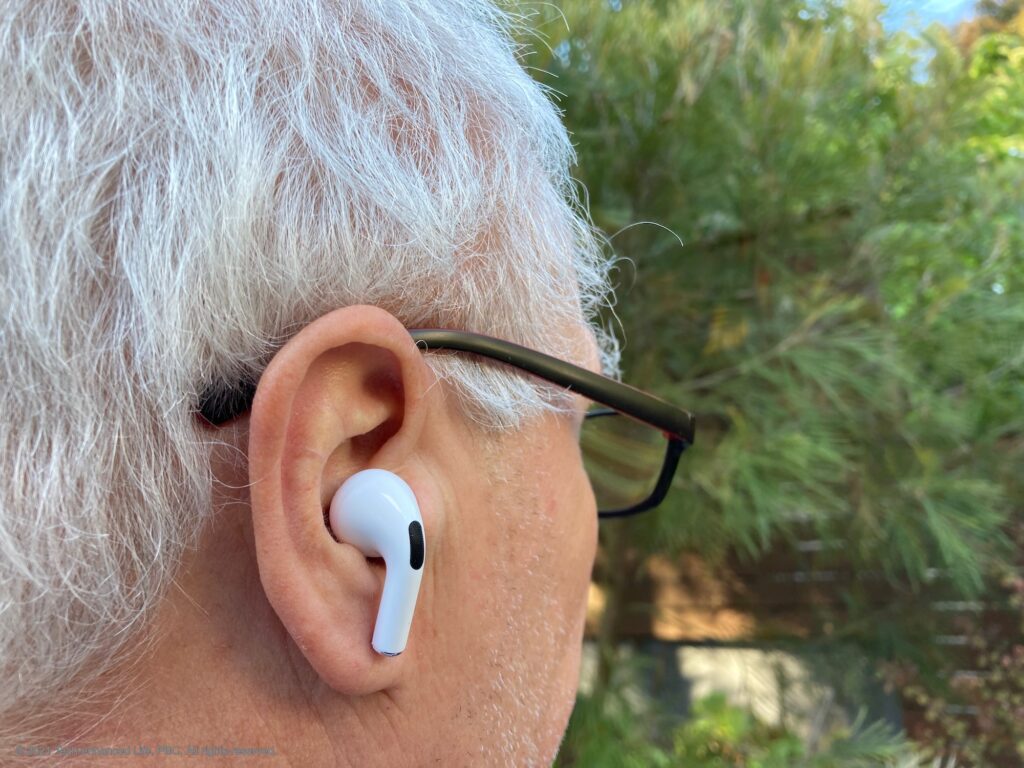
Hearables: Better Hearing, Less Stigma?
Hearables, which include smart wireless earbuds and some types of hearing aids, have the potential to deliver the benefits of better hearing to a far broader segment of the population than is served by today’s hearing aid industry. This includes people with quite modest hearing loss, and people who are put off by the perceived stigma or cost of conventional hearing aids. This article explains exactly what hearables are; who they are good for; and why they are important.
My Background:
Tech-enhanced Life has a small group of individuals who share the tasks of creating syntheses of our explorations, and other outputs that summarize investigations in which a number of people have participated. This type of work is published under the authorship of “The Tech-enhanced Life Editorial team”.
We also publish a variety of content authored by specific individuals, and you can see those individual contributors profiled on our “Collaborators and Contributors” page.
